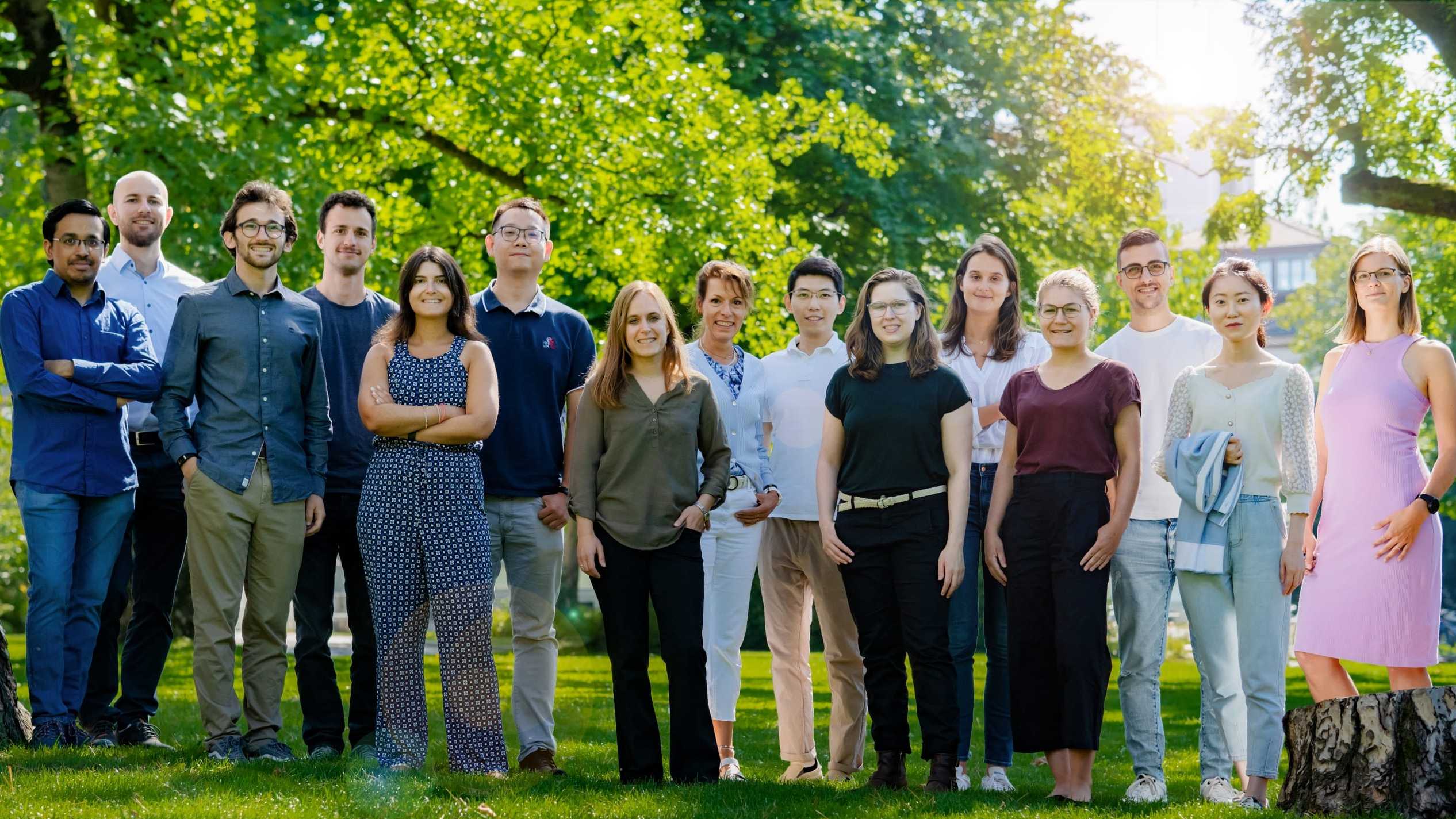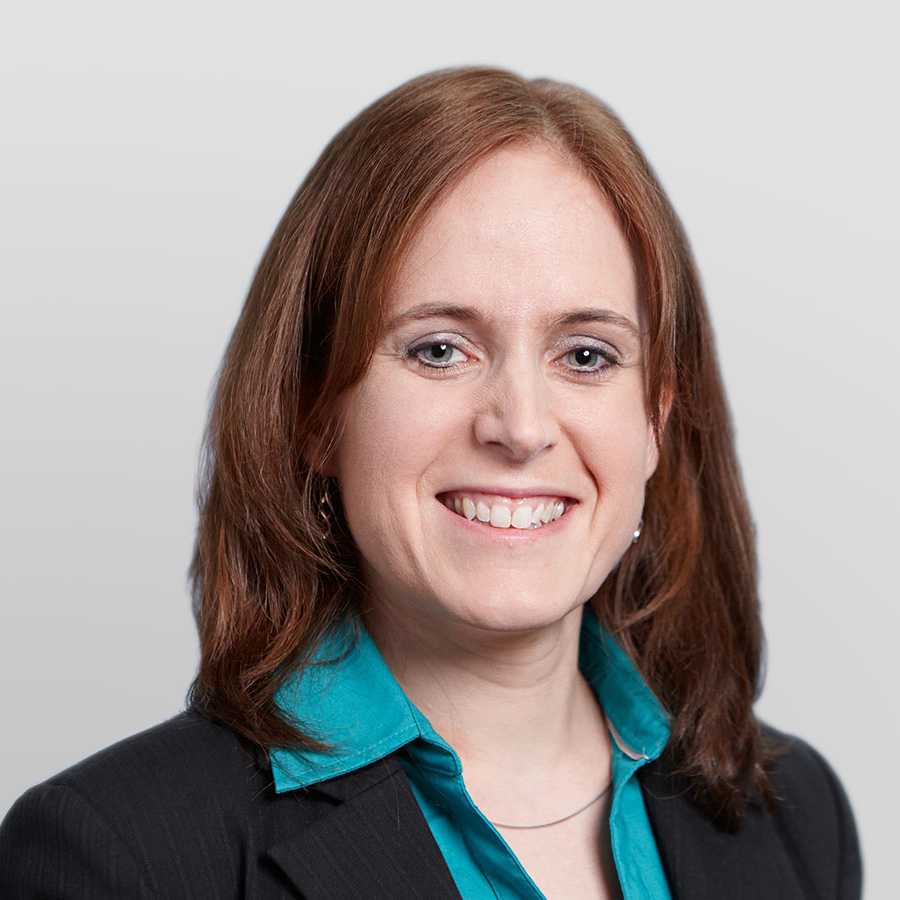"Electrical energy is the basis of everything in electrical engineering"
Prof. Gabriela Hug is a professor at the Power Systems Laboratory in the Department of Information Technology and Electrical Engineering and head of the Energy Science Center (ESC). In our interview, the D-ITET graduate talks about her professional career and the importance of electrical engineering for future energy security.

What is your research focus?
Our research focus is on the electrical energy system and its optimal operation. Among other things, we deal with modelling, i.e. the mathematical description of the energy system. This allows us to calculate, for example, what an electrical energy system could look like in 2050, in which the balance between generation and consumption is ensured at all times.
In addition, we develop control algorithms that enable, for example, optimal coordination between storage, solar plants and other power plants over different time scales. This ranges from the seconds range to seasonal planning.
Data also plays an important role for us. We use data from smart meters as well as measurements in the electrical energy grid to make informed decisions and make the grid transparent. This means we always know what is currently happening in the system and whether or not we are close to capacity limits. The amount of available data is constantly increasing. It is crucial to convert this data into usable information to improve the operation and monitoring of the electrical power system.
What led you to this field?
Originally I wanted to study mathematics. But then my physics teacher asked me if I would like to take part in a "Jugend forscht" research week. At the end of that week, during which we built robots, I realised that I actually really like technology because it involves applied mathematics.
After that, I looked into where I could study engineering. During a visit to the ETH, I also sat in on an electrical engineering lecture and realised that this was the right thing for me. I came to focus on electrical energy because, in a way, it is the mother of everything else in this field: without electricity, there can be no computers or other technologies.

“Originally I wanted to study mathematics. But then my physics teacher asked me if I would like to take part in a research week of "Jugend forscht". At the end of that week, during which we built robots, I realised that I actually really like technology because it involves applied mathematics.”Prof. Gabriela Hug
In your opinion, what are the biggest changes and developments at the department since you graduated from ETH Zurich?
The most significant changes are in the flexibility and the projects. When I was a student, we already had semester and master's theses, but today there is more flexibility in terms of how you want to achieve the required credits. Maybe you want to do an internship or write another thesis. Back then, the Center for Project-Based Learning didn't exist either, which today offers many exciting interdisciplinary and practice-oriented projects.
What impact does your research have on society?
Our research contributes to pointing the way to a sustainable energy system. Our goal is to develop technical solutions to make system operation safe, even if a large part of the resources are renewable energies. But our role goes beyond technology: we see it as our task to educate the public about the possibilities and limitations, the myths and facts associated with different energy sources, rather than making sweeping statements. In doing so, we are in contact not only with individuals and the public, but also with institutions, authorities and political institutions. This sometimes results in polarising topics, such as nuclear power or energy trade with foreign countries.
What are currently the biggest challenges in your field of research?
In an electrical energy system, it is crucial that the energy fed in always corresponds to the current consumption. Energy storage systems exist, but their capacities and possible uses are limited. At the same time, it is important to ensure that the grid is not overloaded. There are fixed limits for lines and transformers that must not be exceeded. It is possible to calculate where and how the current will flow. This balance must be maintained on different time scales, from seconds to a whole year.
The integration of renewable energies also brings new fluctuations into the grid and changes its reaction to short-term changes. If less energy is produced than consumed, renewable resources can contribute to the system becoming unstable more quickly. This variability needs to be balanced. So we are not developing new wind turbines and solar cells, but looking at their integration. This is the main challenge we are dealing with, but to a certain extent it is coupled with the non-technical, i.e. the political side.
Another challenge is data and its use. At the moment, the question is how to use the large amounts of data collected to ensure and optimise grid operation. This data must also be protected.
With which colleagues within and outside the department do you have collaborations?
As co-director of the NCCR Automation, I maintain numerous collaborations. Some of them are in the area of automation technology, where it's all about controls and new optimisation algorithms. Here, for example, I work with colleagues from the Institute of Automation (IfA) and EPFL.
Other collaborations involve energy system modelling and scenario generation. Here we analyse what optimal investments in areas such as generation or storage might look like. In this context, I work with colleagues from D-MAVT and D-MTEC. I also have a very close collaboration with the Energy Science Center, where I am also chair of the board. The main task of the Energy Science Center is to initiate larger, newer projects and to recruit professors for them. In the course of this work, I collaborate with various people.
What lectures are you giving this semester and next semester?
In the autumn semester, I will be teaching an introductory lecture on the electrical power system together with Christian Franck. Also in the autumn semester, the lecture "Power System Analysis" will take place. In the spring semester, I teach "Optimisation in Electrical Power Systems". My lecture "Power Systems and Dynamics" is the most advanced.
What is the composition of your group? Are you looking for doctoral students?
We are always looking for doctoral students! My group is very heterogeneous and also very international: more than ten nations are represented among our 18 members. Currently, 50 percent of my group is made up of women, but the composition is actually changing all the time.
We also have a broad range of professional backgrounds: Some members come from the economic sector and deal with electricity markets, others come from the field of energy system modelling and develop scenarios. Still others have their focus on optimisation and control technology. The different backgrounds mean that the projects are also very diverse.